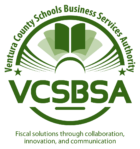
Grades: TK-8
Director: Dr. Kelly Simon
Website: www.bridgescharter.org
We (educators, parents and students) operate under the shared philosophy that we are all teachers and learners in our educational community. Educator s view the classroom as a rich, evolving experience, and consider the learning styles of our students when planning a meaningful, balanced and standards-based curriculum. Students are primarily motivated by their interests and passions, yet can learn to be motivated by opportunities to challenge themselves and improve in areas they determine to be ripe for growth. Children learn best, and will be most motivated, in a nurturing, safe, and supportive environment, where their curiosities and talents are respected. Thus, the impact of positive interpersonal relationships between classroom and community members cannot be understated. It is through these positive, collaborative and respectful interactions that learning will best occur.
We believe the school day provides ample opportunities to discuss, engage in, and learn from everyday experiences, be it a current event or play ground dynamics. The exploration of relevant and sometimes challenging social issues and circumstances provides practice in conflict resolution and creates a participatory classroom community. When children are active participants in their learning, what they learn becomes more relevant. Making learning relevant to the world around us is vital, as is providing a context-driven curriculum. Context-driven lessons and activities allow students to recall and utilize what they know already, and apply that prior knowledge to new experiences. Thus, the learning and practice of basic, fundamental skills becomes part of the process, not the goal itself. As students mature and matriculate from one level to the next, they will each work toward the goal of being a confident, participatory, socially responsible, and independent life-long learner.
The educational design of BRIDGES Charter School has its basis in the theory of constructivism (Piaget), which details how people learn. Understanding cannot simply be transferred by explanation from one mind (that of an educator) to another mind (that of a student). Rather, each of us constructs our own image of the universe and how it fits together through personal engagement with it. This approach is student-centered, whereby teachers (and parents) act as facilitators, providing the guidance and structure necessary for the children to construct meaning from their environment and experiences. Ultimately, children travel from engagement to learning, from learning to understanding, and from understanding to the competent application of information.
During this educational process and experience, our students will practice effective oral and written self-expression, critical thinking and problem solving, and learn personal responsibility. They will actively engage in the curriculum and find meaningful ways to demonstrate their mastery of concepts, be it thematic, collaborative, dramatic, presentation-style, or a combination of choices. Through cooperative activities and project-based learning, students will develop powerful reasoning, negotiating, and creative-thinking skills. Students will also learn to engage with a variety of learners, in order to further appreciate the variety of cumulative talents their groups have to offer, whether if be in cross-age groups, homogeneous groups, or while working with adults. Having ample opportunities to learn from, learn with, and assist in the learning of others builds and nurtures a sense of community and social responsibility, and fosters the skills necessary for life-long learning. Consequently, these fundamental life skills serve a s a foundation for the pursuit of academic excellence and high achievement.
We believe that all children have an innate desire to learn and that children learn best by doing. Because we recognize that each child is unique, we have committed ourselves to creating an inclusive educational experience that combines current educational research, common sense, and attention to various needs and learning styles in order to move each child forward. We feel that such a dynamic, responsive learning environment is only possible when the student to adult ratio is dramatically lowered by consistent parent participation in the classroom. We also believe that a successful student is one who emerges from school as a balanced individual who is confident and competent not only academically, but also socially and emotionally.
In conclusion, it is our belief that learning best occurs when children are presented with ample opportunities to engage with others; when they have room for self-expression, creativity and mastery within the context of their learning; and where a nurturing educational environment is provided so that each student reaches his or her potential as a respected individual.
